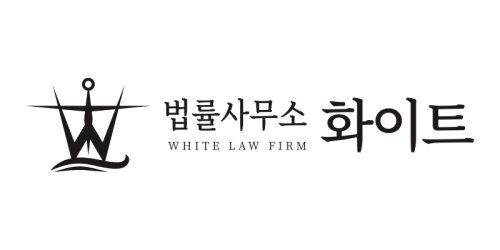Best Defamation Lawyers in South Korea
Share your needs with us, get contacted by law firms.
Free. Takes 2 min.
Or refine your search by selecting a city:
List of the best lawyers in South Korea
About Defamation Law in South Korea
Defamation in South Korea is taken very seriously and is punishable under both civil and criminal law. It covers any false statement made to a third party that harms the reputation of an individual or business entity. If you have been accused of defamation or are a victim of defamation, it is important to seek legal advice to protect your rights.
Why You May Need a Lawyer
You may need a lawyer in cases where you have been accused of defamation or if you are a victim of defamation. A lawyer can help you navigate the legal process, gather evidence, and present a strong case in court. They can also advise you on the best course of action to protect your rights and reputation.
Local Laws Overview
In South Korea, defamation is governed by the Criminal Act and the Act on Promotion of Information and Communications Network Utilization and Information Protection. Both civil and criminal penalties can be imposed for defamation, including fines and imprisonment. It is important to be aware of these laws and how they may affect your case.
Frequently Asked Questions
1. What constitutes defamation in South Korea?
In South Korea, defamation is any false statement made to a third party that harms the reputation of an individual or business entity.
2. What are the penalties for defamation in South Korea?
Penalties for defamation in South Korea can include fines and imprisonment, depending on the severity of the offense.
3. Can truth be used as a defense in a defamation case in South Korea?
Yes, truth can be used as a defense in a defamation case in South Korea. If the statement in question is proven to be true, it may not be considered defamatory.
4. Can opinions be considered defamatory in South Korea?
Opinions are generally not considered defamatory in South Korea unless they are presented as facts and harm the reputation of an individual or business entity.
5. How long do I have to file a defamation lawsuit in South Korea?
The statute of limitations for filing a defamation lawsuit in South Korea is one year from the date the defamatory statement was made or published.
6. Can I be sued for defamation by a public figure in South Korea?
Public figures in South Korea must prove actual malice to win a defamation lawsuit. This means they must show that the defamatory statement was made with knowledge of its falsehood or reckless disregard for the truth.
7. Can I sue someone for defamation if they post something on social media in South Korea?
Yes, defamation on social media is subject to the same laws as traditional forms of defamation in South Korea. You can sue someone for defamation if they post false and harmful statements about you on social media.
8. Can I settle a defamation case out of court in South Korea?
Yes, defamation cases in South Korea can be settled out of court through mediation or negotiation. It is advisable to seek legal advice before entering into a settlement agreement.
9. Can I seek damages for defamation in South Korea?
Yes, if you are successful in a defamation lawsuit in South Korea, you may be awarded damages to compensate for any harm caused to your reputation.
10. How can I prove defamation in South Korea?
To prove defamation in South Korea, you must show that a false statement was made to a third party, that the statement harmed your reputation, and that the statement was not privileged or protected speech.
Additional Resources
If you are in need of legal advice regarding defamation in South Korea, you can contact the Korean Bar Association or the National Legal Aid Center for assistance. These organizations can provide you with information on finding a qualified lawyer to help with your case.
Next Steps
If you believe you have been a victim of defamation in South Korea, it is important to seek legal advice as soon as possible. A lawyer can help you understand your rights, gather evidence, and navigate the legal process to protect your reputation. Contact a legal professional today to discuss your options and determine the best course of action for your case.
Lawzana helps you find the best lawyers and law firms in South Korea through a curated and pre-screened list of qualified legal professionals. Our platform offers rankings and detailed profiles of attorneys and law firms, allowing you to compare based on practice areas, including Defamation, experience, and client feedback.
Each profile includes a description of the firm's areas of practice, client reviews, team members and partners, year of establishment, spoken languages, office locations, contact information, social media presence, and any published articles or resources. Most firms on our platform speak English and are experienced in both local and international legal matters.
Get a quote from top-rated law firms in South Korea — quickly, securely, and without unnecessary hassle.
Disclaimer:
The information provided on this page is for general informational purposes only and does not constitute legal advice. While we strive to ensure the accuracy and relevance of the content, legal information may change over time, and interpretations of the law can vary. You should always consult with a qualified legal professional for advice specific to your situation.
We disclaim all liability for actions taken or not taken based on the content of this page. If you believe any information is incorrect or outdated, please contact us, and we will review and update it where appropriate.
Browse defamation law firms by city in South Korea
Refine your search by selecting a city.










